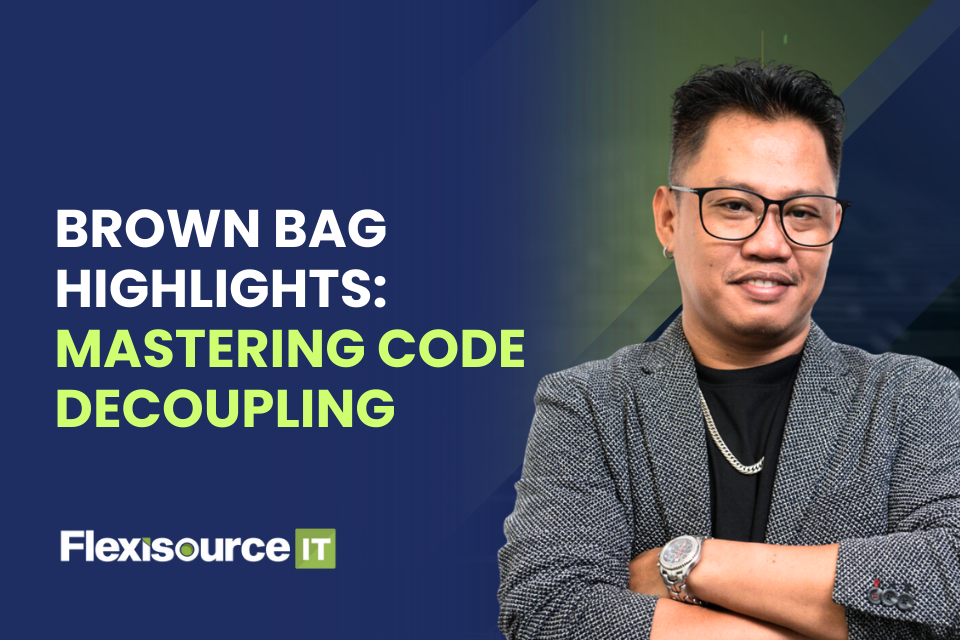Makati, Philippines – On the 9th of May 2024, a brown bag session titled “Mastering Code Decoupling: Building Flexible and Maintainable Software” was held by Flexisource IT, led by its tech lead and expert Max Quebral.
The mini-session focused on essential concepts of code decoupling, a critical practice for building maintainable, scalable, and adaptable software systems.
Overview of Code Decoupling
The session began with an overview of the event. Max commenced the session by presenting the significance of code decoupling in development. He introduced the tangible benefits of decoupled code, which includes the following:
- Efficiency. During the session, our speaker explained that decoupled code can facilitate easier testing and streamlined collaboration, leading to faster development cycles and reduced debugging headaches.
- Maintainability. Max explained that code decoupling promotes maintainability by creating easier-to-understand as they are isolated from each other and focus on a specific component without understanding the whole system. Likewise, code decoupling also reduces the introduction of bugs.
- Scalability. As your project grows, so is your code. Max highlighted that decoupled code allows you to seamlessly add or modify components without causing a system meltdown.
He also showcased two more benefits: testability and reusability.
Principles of Code Decoupling
Next, Max delved into the core principles of Code Decoupling. This includes three (3) principles: Separation of Concerns, Dependency Inversion, and Dependency or Loose Coupling. Here are the differences:
- Separation of Concerns. This principle focuses on isolating different functionalities within the codebase. Max used two architectural designs: Model View Controller (MVC) and Model View View Model (MVVM). He explained how each module could handle a specific task, promoting code clarity and reducing redundancy.
- Dependency Inversion. Here, code that relies on abstractions rather than concrete implementations. Max used SOLID Principles of Object-Oriented and Agile Design by Robert C. Martins as an example. He explains that the idea of dependency inversion, according to the principle, is that high-level modules should not depend on low-level modules. Instead, both should depend on abstraction.
- Dependency Injection or Loose Coupling. This last principle is helpful to develop a loosely coupled program. Max explained that in this principle, developers inject dependencies from the outside instead of hard-coding them within a component.
Before moving to the next portion of the session, Max clarified the difference between dependency inversion and dependency injection. He explained that Dependency Inversion focuses on the design principle, while Dependency Injection is a technique used to implement that principle.
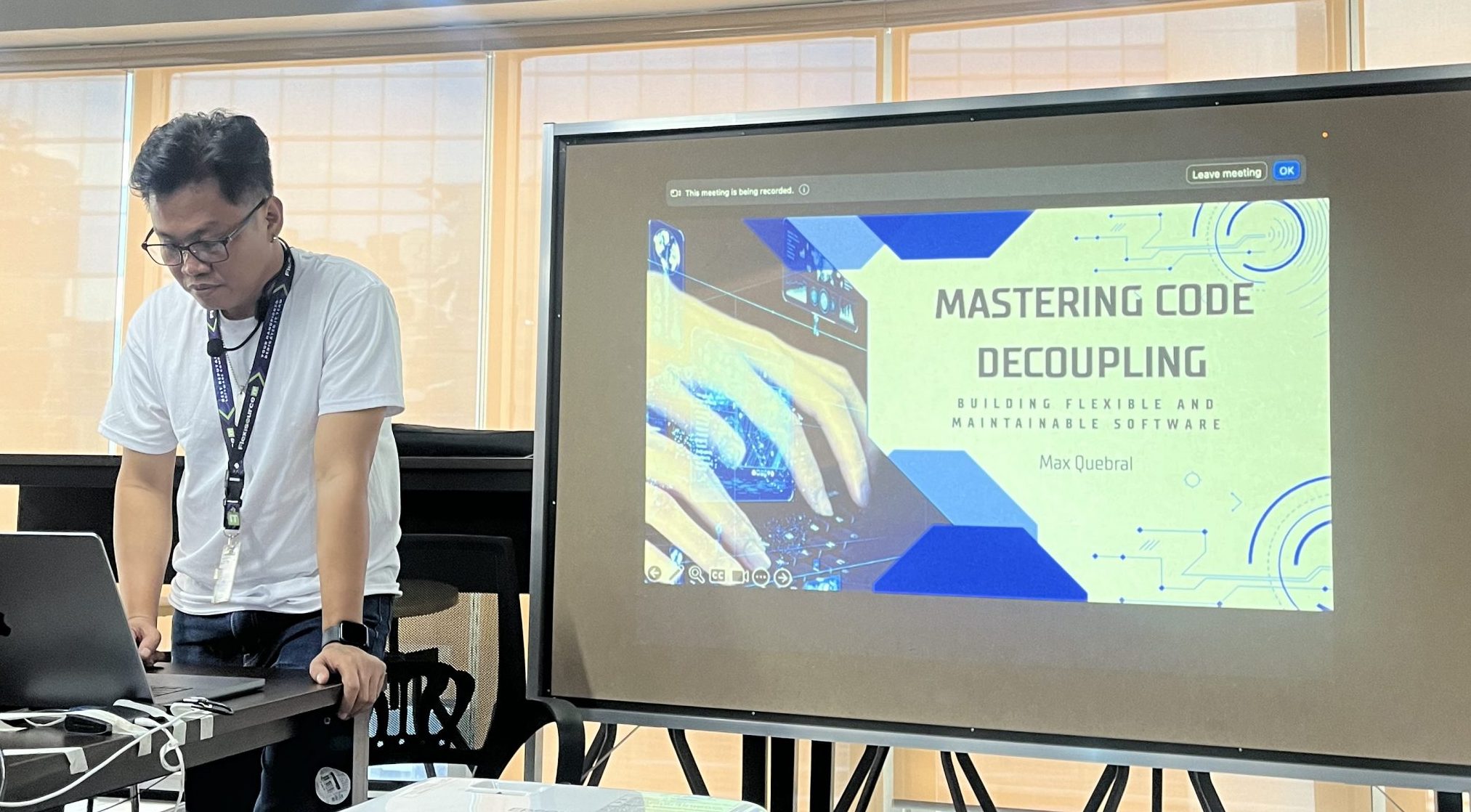
Real-World Examples
To solidify these concepts, Max presented real-world examples that contrasted coupled and decoupled code scenarios. This visual demonstration allowed participants to grasp the practical implications of code decoupling and its impact on code maintainability and flexibility.
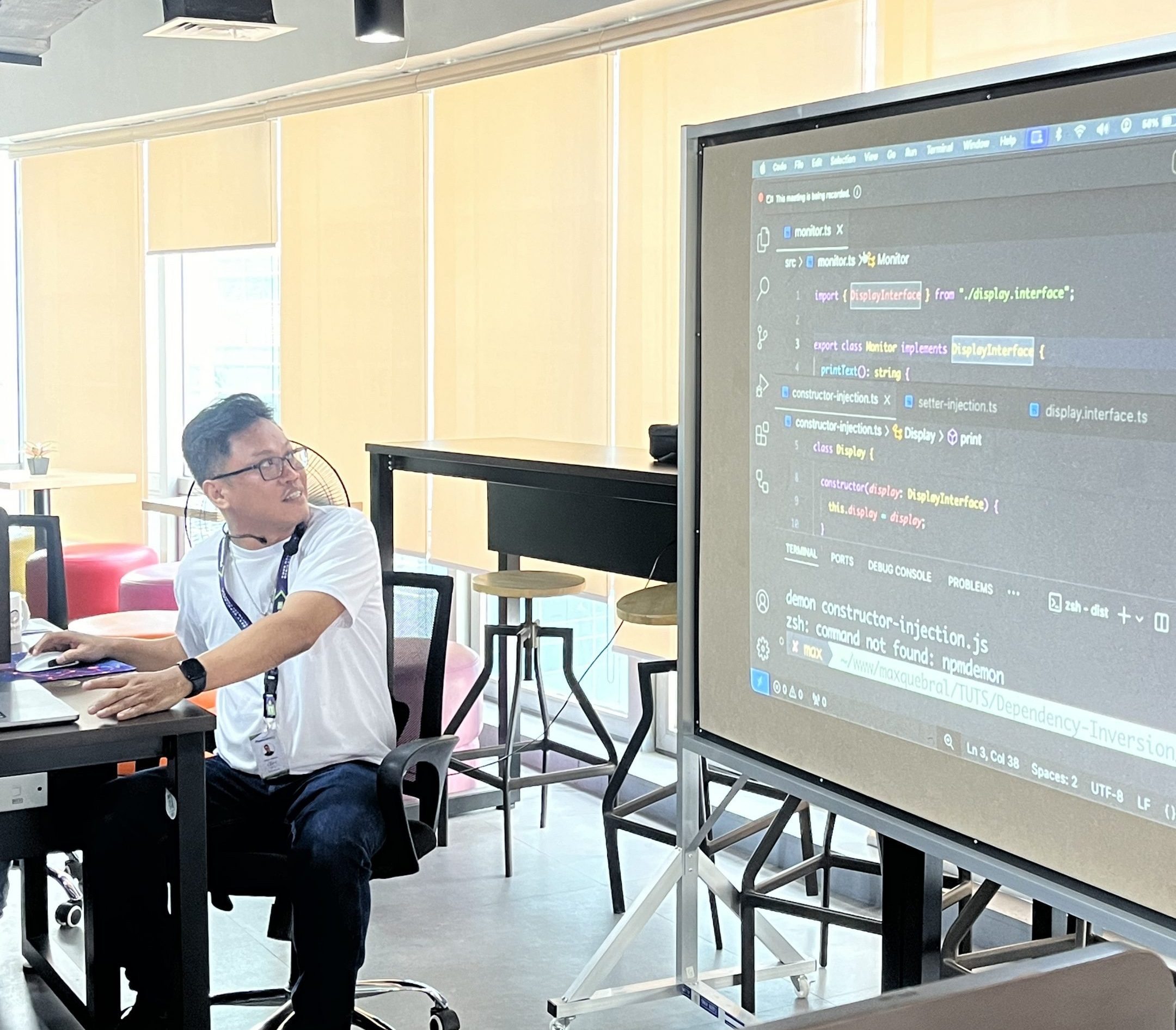
Interactive Learning: Workshop and Q&A
The session transitioned into a practical exercise. Max presented real code samples on screen, guiding participants through decoupling exercises in sample projects. Participants actively participated in practical exercises on decoupling techniques, applying them to sample projects.
Before the session ended, several developers and attendees presented their questions to Max. In return, he offered practical tips for integrating decoupling principles into existing codebases. Likewise, he recommended additional reading materials and highlighted opportunities for networking and community engagement within the developer community.
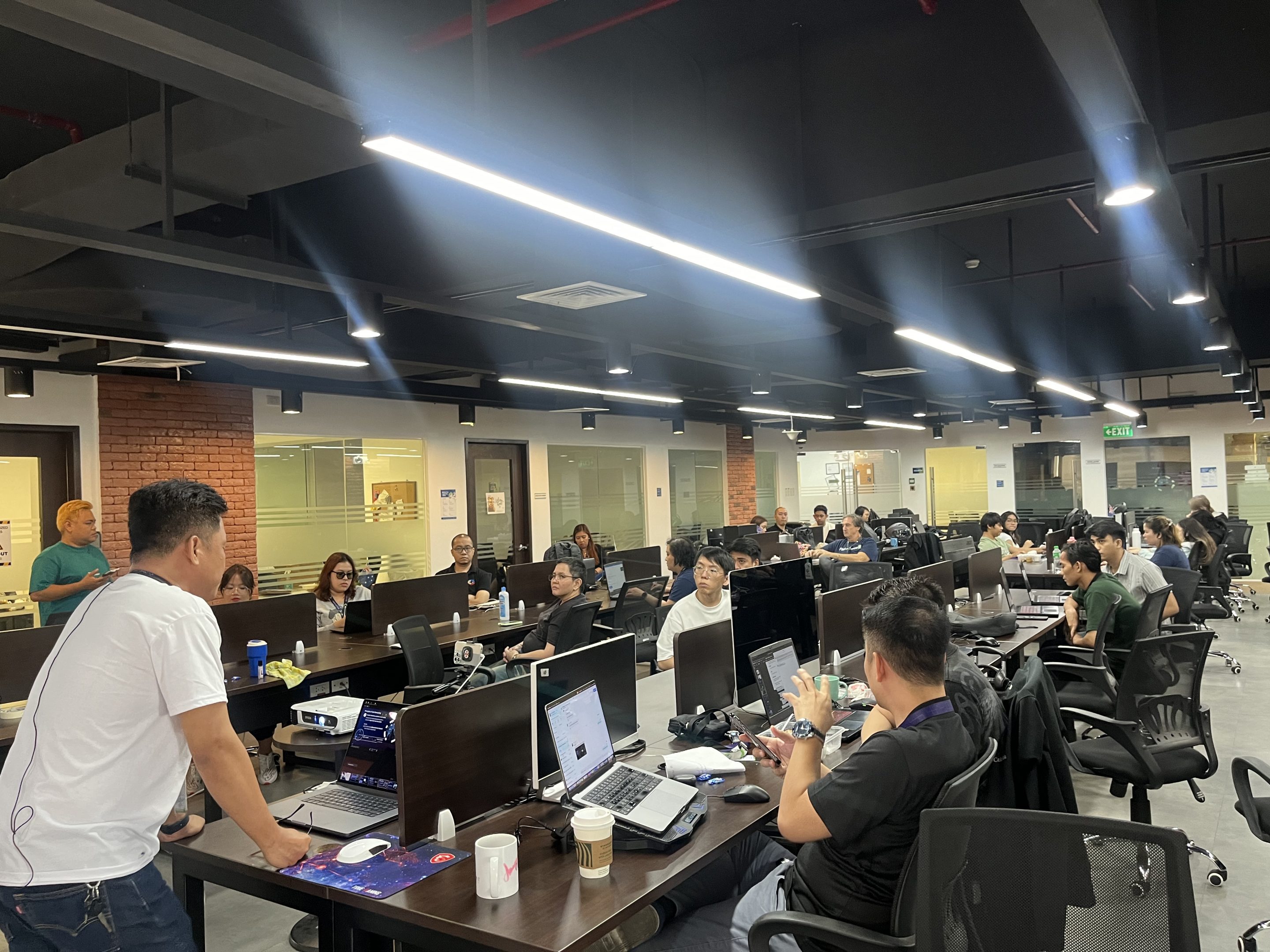
Wrapping Up
The Brown Bag session on “Mastering Code Decoupling” concluded with a sense of accomplishment. Participants emerged equipped with practical tools and strategies to craft cleaner, more maintainable code. This session was a valuable stepping stone for developers seeking to elevate their coding practices and build future-proof software systems.
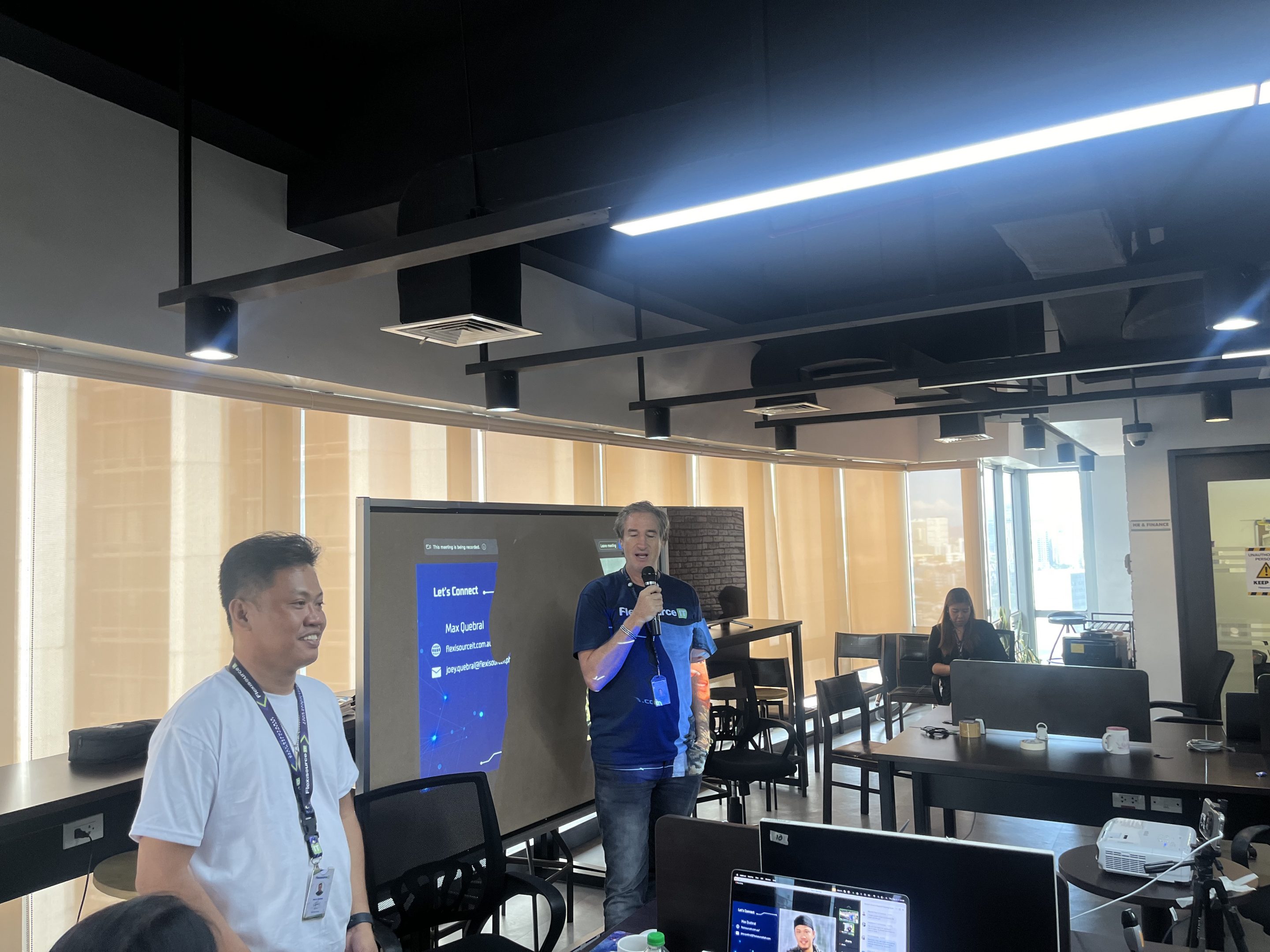
Did you miss the Session? Watch the Recording Now!
The entire session is available to view on our YouTube Channel! Click the link below to learn more: https://www.youtube.com/watch?v=PcXjcZEVMPs

